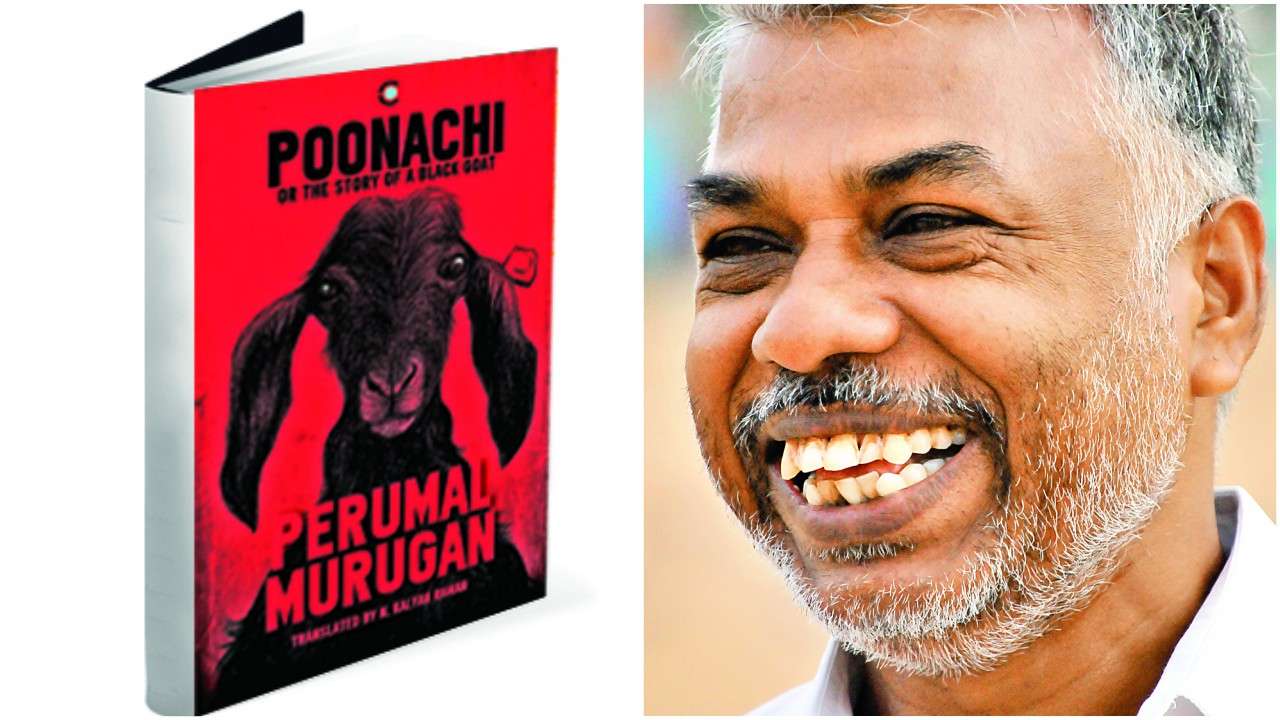
Perumal Murugan is back to doing what he does best — write. And thank God for that! It was in 2015 that certain caste groups in Tamil Nadu took offense to the content of the author’s book One Part Woman, leading him to declare his decision to give up writing altogether. However, with the case being dismissed by the Madras High Court in 2016, the Tamil author made a return to his passion. Poonachi, or The Story of a Black Goat, is his first book after his return to the literary world. He talks about the significance of choosing a goat as his protagonist, self-censorship in his works and his state of mind post the controversy...
When it comes to the classification of the three main entities with six senses, humans are the only ones we know directly. The characteristics of angels or asuras are ones we see through human nature and in human behaviour. So, animals fall more on the asura side of things and that is what I mean by familiarity with that area. I have spent a lot of my childhood around livestock like goats, cows, dogs and cats. And, that’s why I have chosen goats — the familiarity with them and because the other animals are excluded for reasons I provided in the preface.
After my two-year hiatus from writing, I started this story as a way of getting back into practice. I thought I would write a short story about a goat. But once I started writing, I got into the flow of it and it ended up becoming a novel. While there wasn’t a block in terms of writing, I found that I couldn’t go back to a lot of ideas I had before the 2015 incident. I had upwards of 10 ideas for various forms such as poetry and novels, but I couldn’t resume any of the old ideas. When it came to approaching a new idea, it was a very natural flow for me.
Quite similar to what I have written in the preface to the book, when I take humans as the protagonist or as a subject to highlight social issues, there is a censor within me. Choosing humans as a subject makes me a little nervous. So, when you pick an animal as a subject, that hesitation is lessened or goes away entirely and that makes the entire writing process a little easier.
After the controversy broke out and I announced my decision to stop writing, I spent a lot of time with my family, my students, focusing more on the academic sides of things. I read a little, mostly classical texts than modern literature. I focused on my passion for agriculture and farming. It wasn’t really avoid that couldn’t be filled, so to speak. And when it comes to reviving myself as a writer, though I never put pen to paper for those two years, it’s not possible to shut away a writer’s mindset. When I looked at something or thought of something, the natural instinct was to at least structure it mentally and ideate and see what I can do with it. Mentally, there wasn’t much to revive. When it came to actually writing, that was in fact why I started writing Poonachi. I intended for it be a short story, something to see just how out of touch I was, but it ended up being a novel. So it was a relatively smooth transition.
Yes, self-censorship is very much present in my writing now. I used to have confidence that my observations about the people around me, about certain traditions and so on were valid and accurate. But after the controversy, I started second-guessing myself and doubted the validity of my observations. And again, as I mentioned in the preface to the book, that sort of self-censorship is why I left aside humans and angels and went more towards the asura side of things, which animals fall under. And within animals, I left aside controversial animals such as cows and pigs and went for an animal with which I was quite familiar because I grew up on a farm with a lot of sheep and goats. The very selection of my protagonist, the selection of my content does show that there is self-censorship with me at this moment.